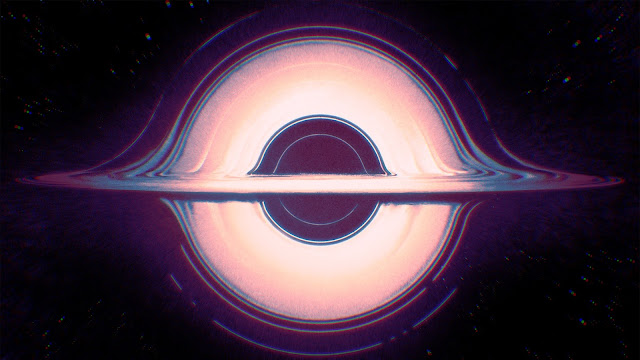 |
Image Credit Ashley Mackenzie for Quanta Magazine |
The universe is a big fan of information. It dislikes creating new information and dislikes destroying any of its present information.
Are black holes as simple as they appear, or is there more to their story?
There are two main principles in play:
- Quantum determinism means that the evolution operator uniquely determines its future modifications given the current wave function.
- Reversibility refers to the notion that the evolution operator has an inverse, which means the functions of the past wave are similarly unique.
The combination of both indicates that it is always necessary to maintain information.
What is this Famous Information Paradox For Black Holes?
There have been several attempts in the last few decades to resolve the dilemma of information. Some of these suggestions include increasing our broad knowledge of relativity. Some of them include attempts to combine general relativity with a sense of quantum physics. And some of them are rather odd. All approaches to address the information paradox have not yet been shown. It is exceedingly difficult to directly view black holes since we generally only see them when interacting with their environment (usually when they consume enormous clusters of gas or dust) or when gravitational waves combine and discharge.
Theories attempting to overcome the so-called black hole information paradox predict that black holes are far more complex than general relativity implies. These hypotheses will be tested in the future by observations of photon spheres, which are whirling bands of light at the edges of black holes. Black holes, according to Albert Einstein's theory of general relativity, are remarkably simple. If you know a black hole's mass, charge, and spin, you know all there is to know about it. In truth, black holes are among the universe's most basic and fundamental characteristics.
However, this seeming simplicity creates a disturbing contradiction. Stephen Hawking, a well-known astronomer, discovered that black holes aren't entirely black in the 1970s. Instead, they release radiation as a result of a delicate quantum mechanical process that occurs near their event horizons, or the limits of black holes where nothing, not even light, can escape.
Because black holes are so basic and can be represented with only three numbers, all knowledge about stuff that falls into them appears to be locked away for all time.It makes no difference whether you construct a black hole out of dead stars and interstellar dust or a black hole made of cats; as long as the two black holes have the same spin, mass, and charge, they will be identical.
In Hawking's original formulation of his radiation process, radiation conveyed no information. However, when the black hole releases radiation, it evaporates and finally vanishes, giving rise to the so-called black hole information paradox. If a large amount of information goes into a black hole, and information cannot be destroyed, where does all of the information go after the black hole disappears?
Lessons from the Information Paradox
In a study Submitted on 10 Dec 2020 at arxiv.org
They evaluate current work on the paradox of information. They describe a refined paradox that essentially refers to the inside of the black hole. This study leads to a wide scientific principle: a copy of all information on a slice of a Cauchy can likewise be found near the border of a slice in a quantum gravity theory. This principle teaches us that when it is applied to black holes, the outside of the black hole keeps a complete copy of the information inside. It demonstrates that accounting for this redundancy resolves the information paradox for evaporating black holes and that ignoring this redundancy leads to paradoxes even when black holes are not present.
We don't have a resolution to the black hole information paradox, but that hasn't stopped starry-eyed theorists from dreaming up a host of potential solutions over the decades.
Maybe, for example, information is preserved after all. Although this may seem like a simple statement, it involves rewriting almost all known physics. And black holes are the only places where we've run into trouble with this whole information-preserving thing, so is it really worth reinventing all our physical knowledge just to accommodate this one special case? And yet, we've had to rewrite all of the physics before, so it's not like it would be the first time, and black holes are very compelling objects.
Possible Solutions of Information Paradox
- Information gradually leaks out during the black-hole evaporation
- Information is irretrievably lost
- Information suddenly escapes out during the final stage of black-hole evaporation
- Information is stored in a Planck-sized remnant
- Information is stored in a large remnant
- Information is stored in a baby universe that separates from our own universe
- Information is encoded in the correlations between future and past